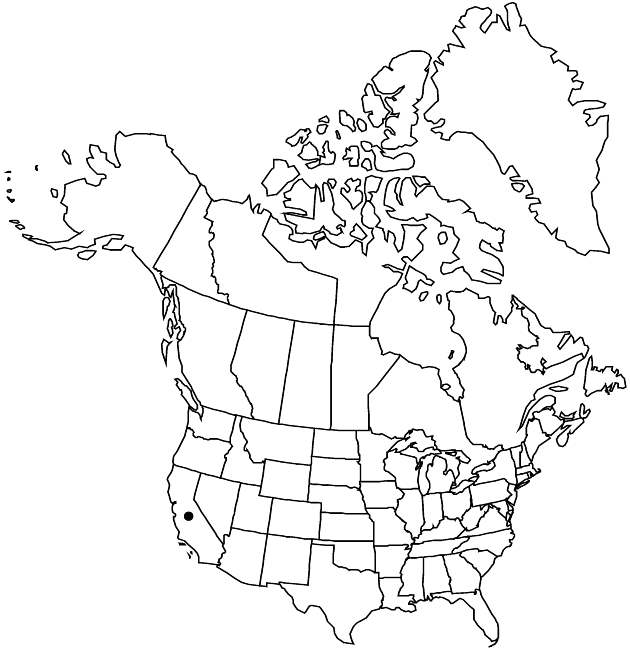Difference between revisions of "Pyrrocoma racemosa var. pinetorum"
Phytologia 71: 61. 1991.
Basionym: Haplopappus racemosus subsp. pinetorum D. D. Keck
FNA>Volume Importer |
FNA>Volume Importer |
||
| Line 26: | Line 26: | ||
|elevation=600–1700 m | |elevation=600–1700 m | ||
|distribution=Calif. | |distribution=Calif. | ||
| − | |discussion=<p>Variety pinetorum is recognized by its strict habit, villous stems and phyllaries, and relatively large heads in open racemiform arrays. It is thought to be most closely related to var. congesta (D. D. Keck 1940).</p> | + | |discussion=<p>Variety pinetorum is recognized by its strict habit, villous stems and phyllaries, and relatively large heads in open racemiform arrays. It is thought to be most closely related to <i></i>var.<i> congesta</i> (D. D. Keck 1940).</p> |
|tables= | |tables= | ||
|references= | |references= | ||
| Line 50: | Line 50: | ||
|publication year=1991 | |publication year=1991 | ||
|special status= | |special status= | ||
| − | |source xml=https://jpend@bitbucket.org/aafc-mbb/fna-data-curation.git/src/ | + | |source xml=https://jpend@bitbucket.org/aafc-mbb/fna-data-curation.git/src/8f726806613d60c220dc4493de13607dd3150896/coarse_grained_fna_xml/V19-20-21/V20_973.xml |
|tribe=Asteraceae tribe Astereae | |tribe=Asteraceae tribe Astereae | ||
|genus=Pyrrocoma | |genus=Pyrrocoma | ||
Revision as of 15:28, 18 September 2019
Plants 20–60 cm. Stems villous. Leaves: basal blades lanceolate, 60–200 × 5–16 mm, not thin or succulent, margins entire or denticulate-spinulose, faces densely villous. Heads in spiciform or racemiform arrays (internodes long). Involucres campanulate to hemispheric, 10–15 × 12–15 mm. Phyllaries green, margins sometimes ciliate, apices erect, acute to obtuse, mucronate, faces densely villous. Cypsela faces sericeous.
Phenology: Flowering Jul–Sep.
Habitat: Mountain meadows, openings in conifer forests
Elevation: 600–1700 m
Discussion
Variety pinetorum is recognized by its strict habit, villous stems and phyllaries, and relatively large heads in open racemiform arrays. It is thought to be most closely related to var. congesta (D. D. Keck 1940).
Selected References
None.
Lower Taxa
None.
